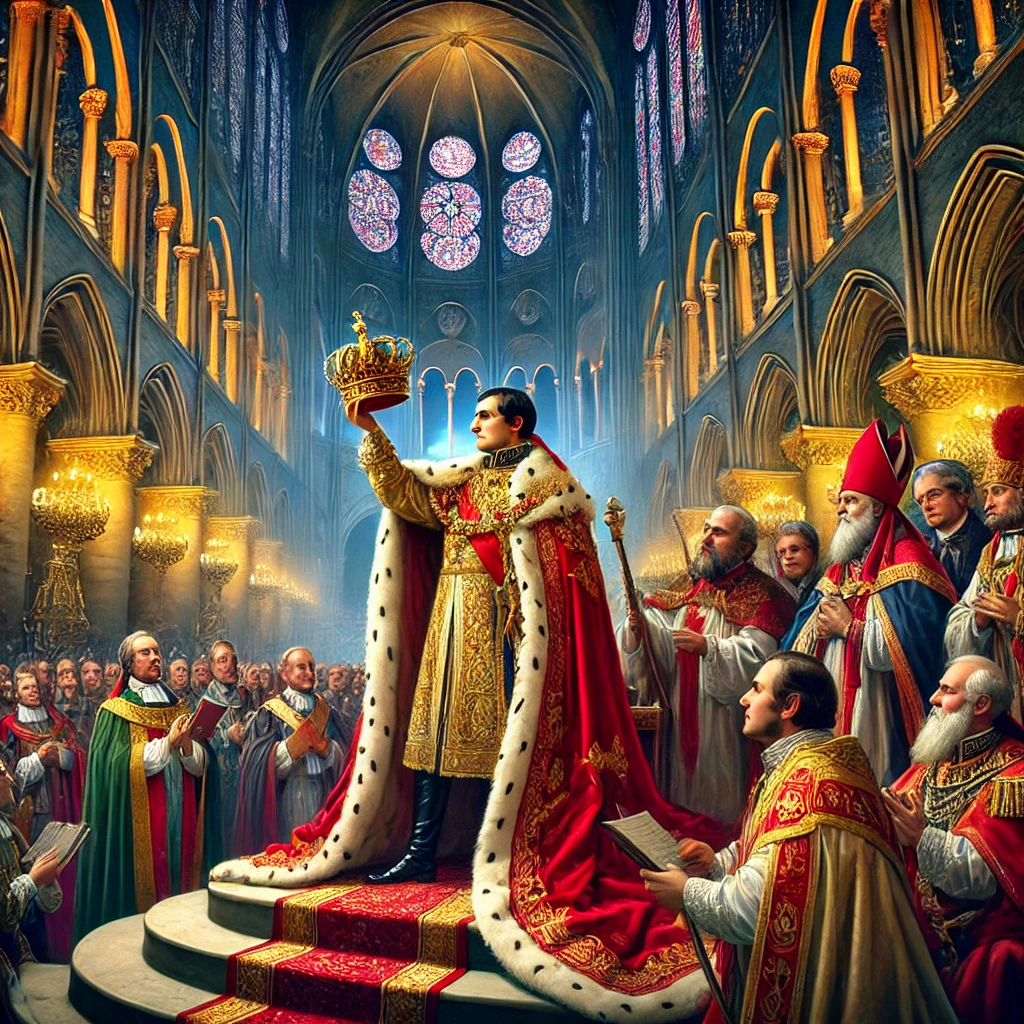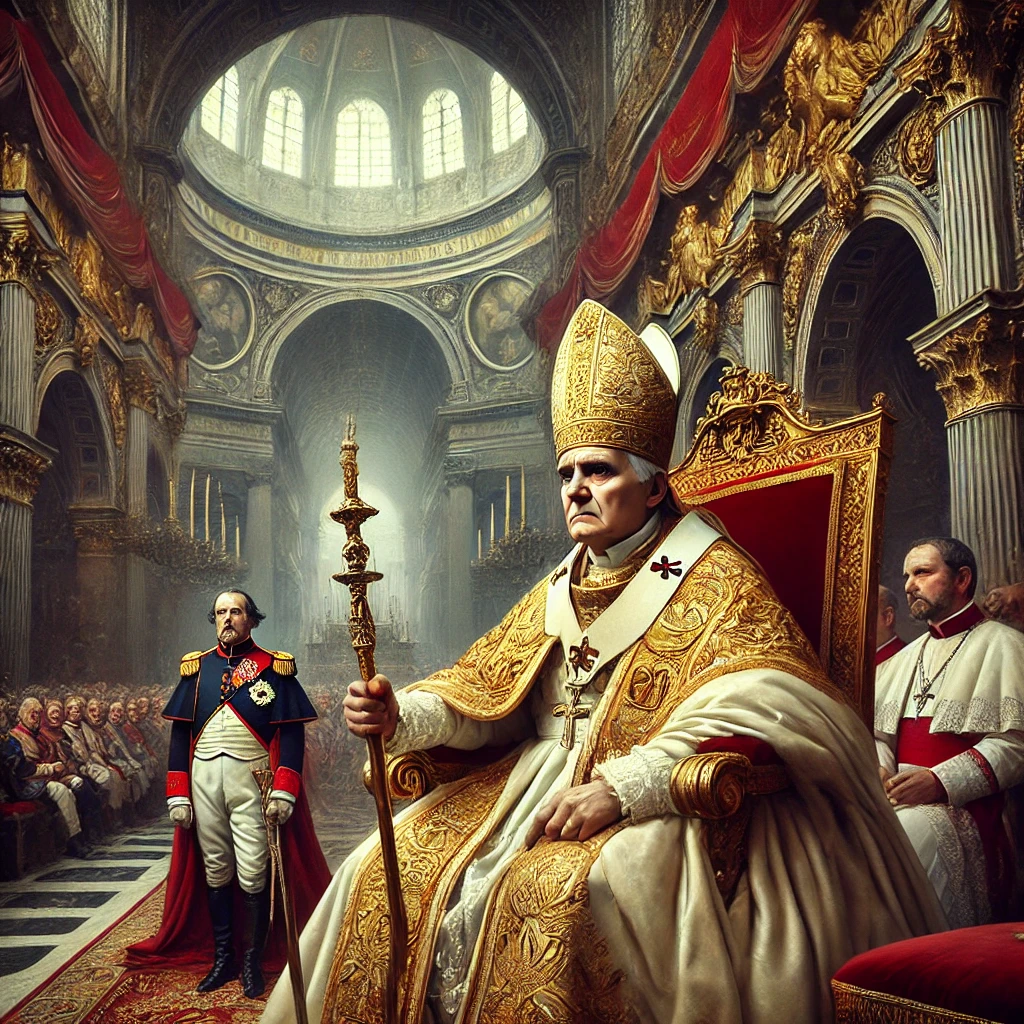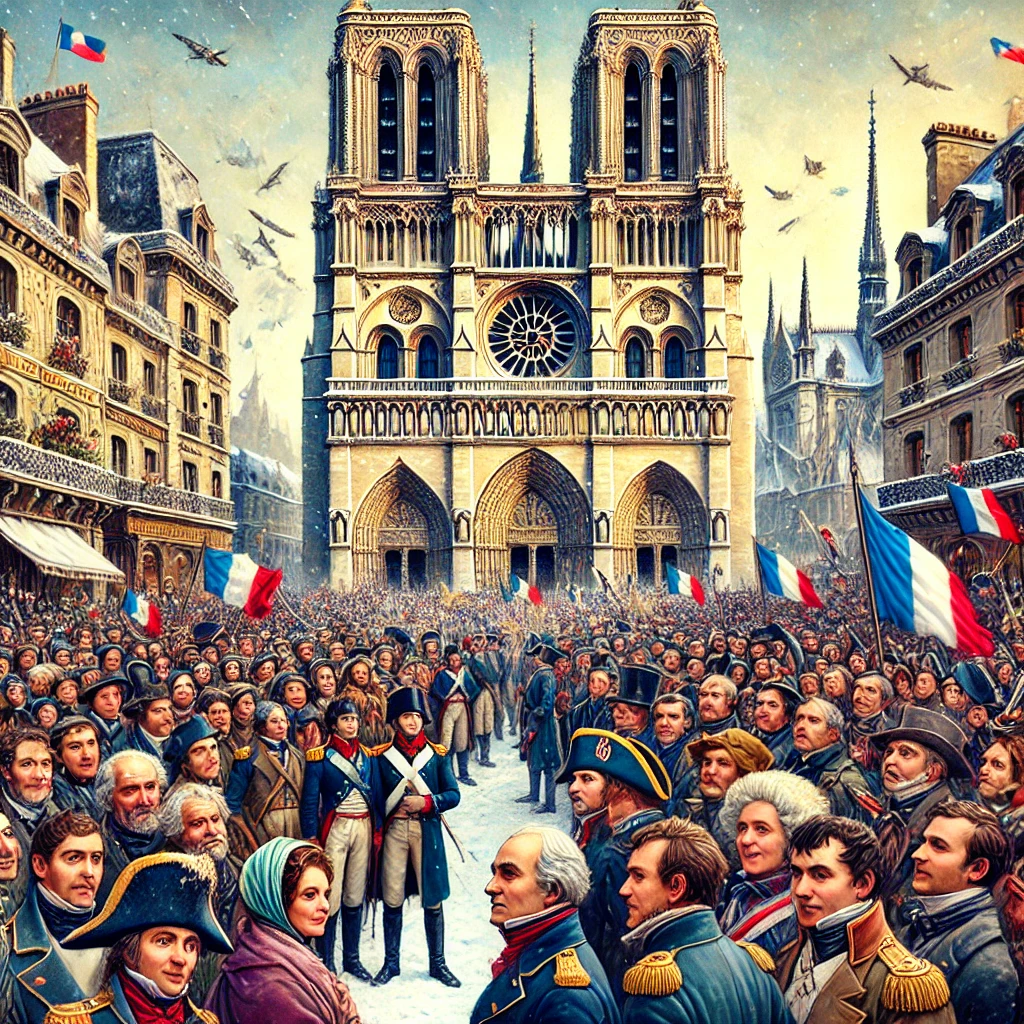On December 2, 1804, Napoleon Bonaparte made history by crowning himself Emperor of the French in a grand ceremony at Notre Dame Cathedral in Paris. Unlike traditional coronations, where a monarch is crowned by a religious leader, Napoleon took the crown from Pope Pius VII and placed it on his own head, symbolizing his belief that his authority came from his own achievements rather than divine right. This bold move underscored Napoleon’s self-made rise to power and his vision for a new order in France and Europe.

The ceremony was a lavish affair, with hundreds of dignitaries, military leaders, and foreign representatives in attendance. Napoleon’s wife, Josephine, was crowned Empress during the same event, further solidifying their rule. The occasion marked the culmination of Napoleon’s rapid ascent from a Corsican military officer to the leader of a vast empire.
Significance in European History
Napoleon’s coronation signified the end of the French Revolution and the beginning of a new era. By establishing himself as Emperor, Napoleon effectively declared the Republic over and ushered in a regime that combined revolutionary ideals with monarchical traditions. His rule aimed to consolidate the gains of the Revolution while creating a stable and centralized government.
This act also marked a dramatic shift in European politics. Napoleon’s Empire challenged the old monarchies of Europe and set the stage for years of conflict, including the Napoleonic Wars. His vision of spreading revolutionary principles, such as meritocracy and legal equality, clashed with the traditional aristocracies, making him a polarizing figure across the continent.

Lasting Impact on Modern Society
Napoleon’s self-coronation has had a lasting impact on both France and the world. Domestically, his reforms, including the Napoleonic Code, restructured French society and laid the foundation for modern legal systems in many countries. The Code emphasized equality before the law, individual rights, and the abolition of feudal privileges, principles that continue to influence contemporary legal frameworks.
Globally, Napoleon’s rise and fall reshaped Europe’s borders and inspired nationalist movements across the world. His actions contributed to the eventual decline of feudalism and the spread of ideas about self-governance and sovereignty. The symbolism of his self-coronation remains a powerful reminder of the tension between individual ambition and collective ideals in leadership.
A Legacy of Leadership and Ambition

The coronation of Napoleon Bonaparte was more than a mere ceremony; it was a statement of ambition, authority, and vision. By crowning himself, Napoleon declared that his power was rooted in his achievements and his ability to shape the destiny of nations. His legacy as a leader who combined revolutionary principles with imperial ambition continues to spark debate and fascination.
From the grandeur of Notre Dame to the echoes of his reforms in today’s world, Napoleon’s coronation is a moment that continues to resonate in history, symbolizing the enduring power of ambition and the complex interplay between tradition and innovation.
